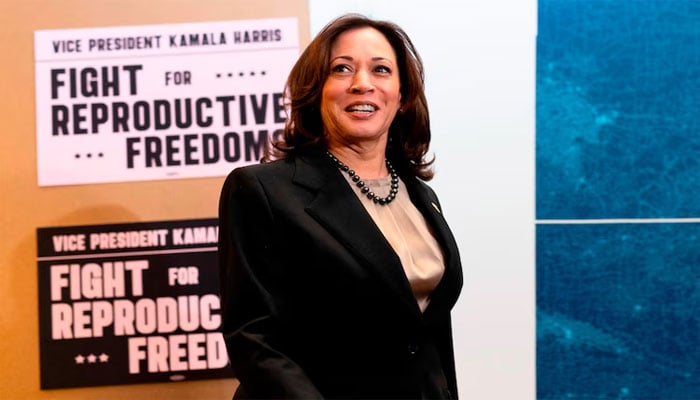
November 5 election is being used by advocates to to raise awareness about reproductive health disparities that affect Black women, such as increased incidence of pregnancy and delivery complications and deaths, as well as higher rates of certain cancers.
Democratic candidate Kamala Harris emphasised abortion rights as a key tenet of her campaign and, during appearances, accused Republican Donald Trump of being responsible for the deaths of two young Black moms in Georgia, a state that restricts abortion.
While public opinion surveys rank inflation and the economy as top priorities for Black women, Reuters spoke to 10 activist groups that said they were aiming to mobilise women of colour around issues of systemic health care inequities.
The effort is part of a 30-year-old movement for “reproductive justice.”
Such concerns go beyond abortion rights, an issue that has galvanised women since the US Supreme Court overturned the constitutional right to an abortion in 2022.
Pregnancy complications
Black women in the US also face greater risks bearing children. They are three times more likely to die from pregnancy-related causes than white women, according to the Center for Disease Control and Prevention.
The CDC and health experts attribute those gaps to chronic conditions such as cardiovascular disease and hypertension as well as structural racism, implicit bias from healthcare providers and lack of access to quality healthcare.
Leah Wright Rigueur, a history professor at Johns Hopkins University, said abortion restrictions have made it even more difficult for Black women to access emergency care in cases of failing pregnancies or complications from medical abortions.
“The landscape for reproductive health for Black women has gotten far more dangerous in the last two and a half years,” she said.
Harris faces risk
However, some experts believe Harris faces a challenge juggling two different constituencies for abortion rights and for maternal mortality.
Dr Nadia Brown, director of the women and gender studies program at Georgetown University, said that white women and Black women historically have different approaches to abortion rights and reproductive health care.
“You won’t find Black women saying I’m voting because I want to try enshrine abortion rights, but rather, you would get Black women talking about, I’m voting because I understand that there’s a lot of attacks on bodily autonomy, and I want to be able to protect that and thinking about healthcare as a human right as a dignity.”
Last month, ProPublica reported on the deaths of two Black mothers, Amber Thurman and Candi Miller, who were denied medical treatment after experiencing complications linked to medication abortions.
Harris spoke about the deaths at a campaign rally in Atlanta days later, saying that Thurman would be alive today if she had not waited 20 hours at the hospital for post-abortion care.

